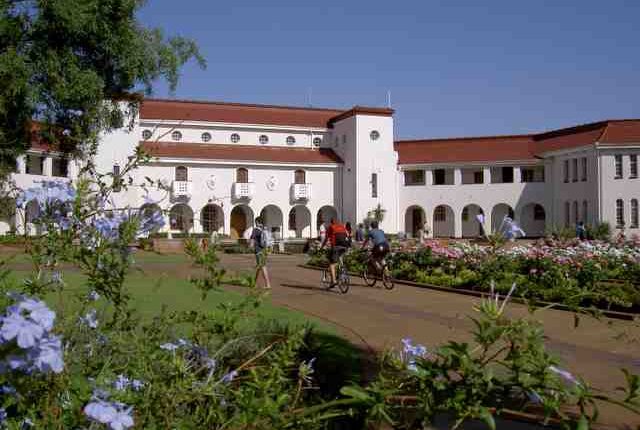North-West University: NWU’s solar car wins Structural Design Award in Sasol Solar Challenge 2022
Naledi 2.0, the North-West University’s (NWU’s) solar car won the Structural Design Award presented by Euro Steel during this year’s 2022 Sasol Solar Challenge.
The challenge took place from 9 to 16 September, covering an estimated distance of 2 500 km from Johannesburg to the finish line in Cape Town.
Engineers from around the world compete in South Africa’s bi-annual Sasol Solar Challenge to cover the longest distance on public roads along the designated route. Over the eight-day event, teams put newly developed technology to the test as they pass through South African towns. It is a great sight for residents who watch in awe as the vehicles pass through.
The NWU team secured fourth place in the category Challenger, and team leader Danie Human says they are very pleased.
“I am very proud of my team members. Prior to the race, none of us knew each other well, and we overcame a lot of obstacles together through sheer determination. I could not have asked for a better team – we achieved comradeship and this victory together,” he says.
In contrast to the competitors, Naledi is constructed of a variety of materials including kevlar, carbon fibre and aluminium. The solar array is mounted on a lightweight aluminium wing to improve cooling and therefore efficiency to increase energy production.
Danie says Naledi went through the paces with ease. “Our vehicle was very sturdy and could withstand the wind gusts very well structurally, especially when passing heavier vehicles such as trucks.” He adds that Naledi’s structural design also enabled it to save weight, so it performed well.
Another unique and impressive design feature of the vehicle is the rotating solar array, which allowed the vehicle to harness almost twice the solar energy at some points along the route in the morning and afternoon.
“With the rotating solar array, we were able to increase our performance because we could rotate the blades in the morning and afternoon to maximise the solar energy. Our performance was improved by this innovative addition to our vehicle,” he says.
“I would like to thank the faculties of Engineering and Natural and Agricultural Sciences, and the Instrument-making department for making this possible,” he says.
The Ilanga Cup , which is currently in the preparation phase for next year, could be Naledi’s next challenge.
It would be a step in the right direction if more students from other faculties participated in the competition, says Danie.
“I think our students from related fields of study will gain great insight working on projects like these. It will also give them the opportunity to broaden their knowledge in the field of renewable energy and perhaps find innovative solutions to our current energy problems.”

